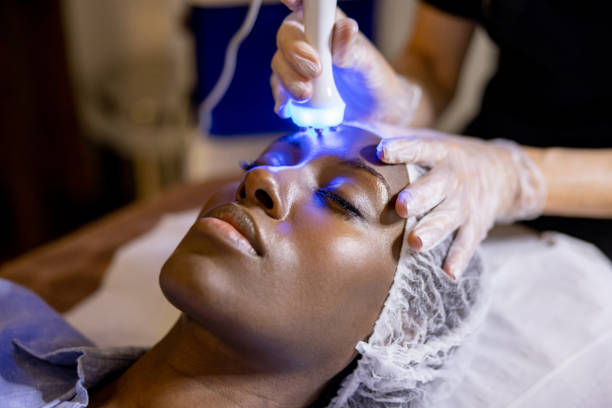Have You Considered Phototherapy for Your Psoriasis?


Though there are different ways to manage your psoriasis, many doctors recommend complementary therapy. That can include taking oral or topical medication with another treatment like phototherapy. Before you start on that journey, however, it’s important that you know what phototherapy entails.
What Is Phototherapy?
Phototherapy is a treatment that uses light to manage the symptoms of certain skin diseases. The treatment can use different types of light depending on the results you’re looking for.
Generally, phototherapy can ease your symptoms by slowing the growth of skin cells, suppressing an overly active immune system, reducing inflammation, and reducing itchiness. With these issues under control, your skin will have a chance to heal.
Doctors consider phototherapy as an effective form of treatment for psoriasis but there are some people for whom it’s not advisable. These are people who have a medical condition that makes them more prone to developing skin cancer, have had any form of skin cancer, have any conditions that make them sensitive to light like lupus, or take drugs that make them sensitive to light.
RELATED: Achieving and Maintaining Psoriasis Remission: Strategies for Clearer Skin
Different Types Of Phototherapy
There are currently six types of phototherapy that you can access. These are:
- Sunlight – Doctors may recommend getting some sunlight for a maximum of 20 minutes per day to treat your psoriasis. If given this option, you should always wear sunscreen.
- Ultraviolet B (UVB) – Your doctor can choose between broadband and narrowband UVB treatment. While broadband is more popular, some doctors say that narrowband is more effective. However, it’s more likely to burn you. You can also ask your doctor about being prescribed a UVB machine that can be used at home.
- Psoralen Plus Ultraviolet A (PUVA) – This option combines UVA light with a medication called psoralen. Psoralen makes your skin more sensitive to light and studies show that this form of phototherapy can have more lasting effects than other options. Unfortunately, it also has more side effects.
- Lasers – In this treatment, doctors will use targeted beams to treat your psoriasis. This targeted therapy is effective more quickly while having fewer side effects.
- Grenz Rays – This treatment uses superficial X-rays in the same way as UV light. It’s less common, though.
- Photodynamic Therapy – This option depends less on the type of light that’s used and more on different medications that will increase your skin’s sensitivity to light. Your doctor may tweak which drugs you use until you find an effective combination.
Potential Side Effects
Though phototherapy can be helpful, it’s not without risks. Directly after treatment, it’s common for your skin to be itchy, red, or tender and you may feel some mild burning.
People with darker skin tones can see dark spots in the treated areas. In rare cases, you may develop blisters. Long-term side effects include wrinkles, freckles, age spots, and loose skin. You may also have an increased risk of developing skin cancer.
RELATED: Which Psoriasis Treatment Is Right For You?
Why Phototherapy Is Modified For Black People
For phototherapy to be effective, the light needs to penetrate the top layer of your skin to work on the inflammatory cells underneath. Black people have more melanin than lighter-skinned ethnicities and this can affect how well the light works. To compensate for this, your doctor might need to give you longer sessions or switch the type of light that’s used.
Your sessions may also be modified depending on the color of your lesions. Light-colored lesions or rashes may need shorter treatment times. Fortunately, some doctors have a guide that they can use to determine the way forward.
Since phototherapy often needs to be modified to be effective for Black people, you need to ensure that you have the right doctor. You can start by asking the doctor how often they’ve worked with Black Americans and how they would change the usual phototherapy procedure for your needs.
Undergoing phototherapy while taking medications can help you manage psoriasis. However, phototherapy isn’t right for everyone so it’s best to have a frank discussion with your doctor. Black people, in particular, need to ensure that they’re ready to deal with any side effects that come with modifying the therapy for their skin.



